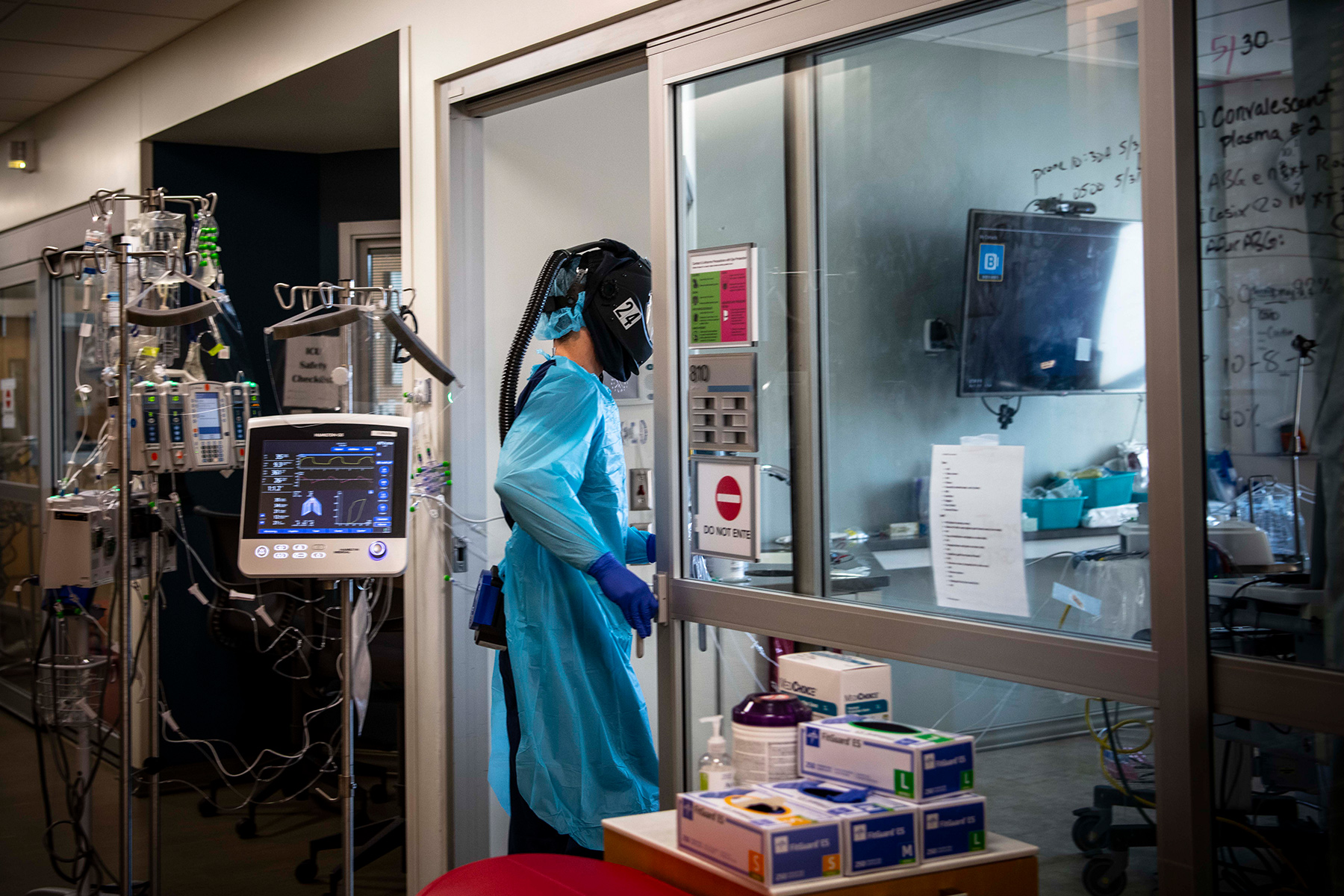Dallas County’s new COVID-19 cases are the highest they have been since March, and the number of people in the hospital due to coronavirus has tripled in the past month in North Texas. The Delta variant is driving the case growth, but vaccine immunity is holding strong.
On June 22, Trauma Service Area E, which includes several counties in North Texas, had 300 hospitalized COVID-19 patients. On July 23, that number was 1,035, including more than 20 percent of adult ICU patients. The majority of these patients are unvaccinated, according to DFW Hospital Council CEO and President Steve Love. “Vaccinations are absolutely helping protect people, and the unvaccinated are very much at risk with the increase in the Delta variant,” he says.
The pattern in Texas mimics that around the country, where cases are heading up in all 50 states. Louisiana, Arkansas, Missouri, and Nevada are seeing the largest increases at almost double the national rate. Despite the increase in cases, Dallas County’s vaccination rates haven’t ticked up, says Steve Miff, CEO of the Parkland Center for Clinical Innovation. “In other southern states where you have a disproportionate increase in cases, they have started to see more people getting vaccinated. We’re not seeing that yet here.”
The number of cases per 100,000 people fell precipitously until June when they steadied as the Delta variant became more common. But as the Delta variant became the most prominent version of the virus, cases have shot back up. “We were beginning to have a strong level of immunity, but then Delta happened in June and completely changed the game,” Miff says.
Despite the increase in cases, hospitals in the area aren’t too concerned with bed capacity, Love says. We are still a long way from the peak of more than 4,000 hospitalized COVID-19 patients in January, but there are other issues. “We’re worried about an already fatigued workforce that’s been at this 17 months. That’s the biggest thing when I’ve talked to CEOs.”
And if case numbers rise as UTSW projects them, that fatigue will only grow. The latest models say that Dallas County will have more than 800 cases per day by October with children returning to school. If life returns entirely to normal, the models estimate that we will have more cases per day than ever. While most children do not experience symptoms, the worry is that they will pass it to their unvaccinated friends or family.
About half of Dallas County is fully vaccinated, and 1.3 million people have received at least one dose. PCCI also estimates that there are 1.3 million more past confirmed and presented COVID-19 cases in Dallas County, meaning that 82 percent of Dallas County have some level of immunity. But the spread of the Delta variant has shown that not all immunity is created equally. The vaccines have proven to be much more effective in preventing serious illness than a previous infection, and officials are still pushing vaccination.
“A previously infected individual continues to have a level of protection not as strong as those that have had the vaccine, and we still don’t know how that changes over time or if that protection starts to be diminished,” Miff says.
So how might we increase our vaccination rate? Miff thinks that employers could be the answer, but it has been a bumpy ride. When Houston Methodist hospital required COVID-19 vaccines for its employees, a nurse pursued a lawsuit against the hospital. No hospitals in DFW require the vaccine, but things are changing as the Delta continues to run rampant. The National Football League has some of the most intense incentives, threatening teams with forfeiting games and lost wages if COVID-19 outbreaks interrupt the schedule. At St. Jude Children’s Research Hospital in Memphis, the hospital is giving employees until Sept. 9 to be vaccinated. In North Carolina, Duke, UNC, and other hospital systems are requiring employees to be vaccinated by Sept. 21.
Miff thinks that employers will move the needed as well, though he says many are waiting until full FDA approval, which might not happen for several months. “Employers are going to put mandates, create meaningful and strong incentives, or penalties for the employees. That’s likely the biggest bump that we’ll get in vaccinations.”
More hospitals will likely follow with vaccine mandates. With months of evidence showing the effectiveness of vaccines, many are frustrated with unfounded hesitancy. “People are playing Russian roulette, to be candid,” Love says. “I don’t mean to scare them, but it’s very disheartening to the healthcare community and the general population to not embrace these facts.”





